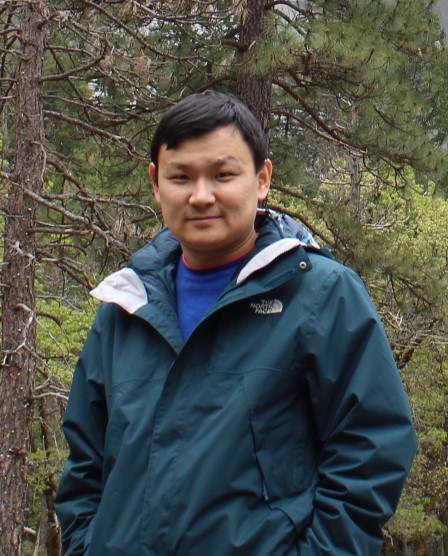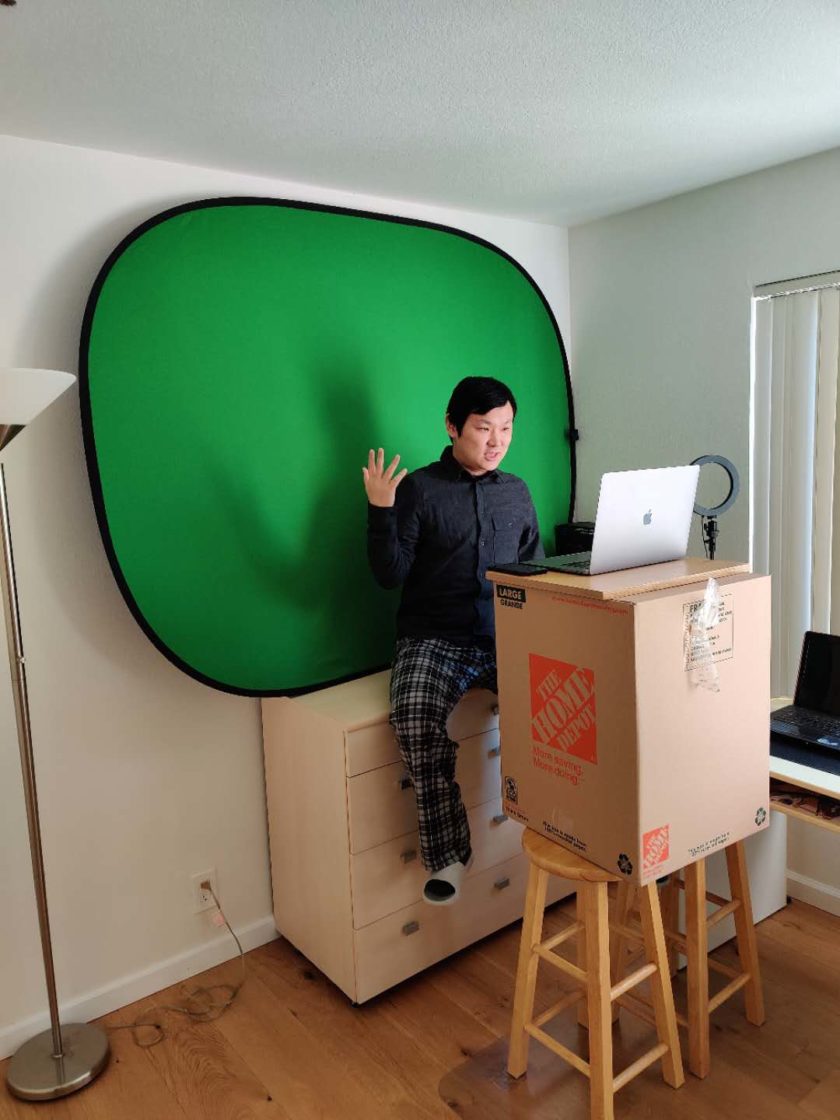 Synchrotron science is in Yang Ha’s DNA. After getting his PhD from Stanford/SSRL, he joined the ALS in 2018 to study batteries and has branched out to theoretical computation and machine learning. He has also learned useful skills for sharing cutting-edge research with a broader audience.
Synchrotron science is in Yang Ha’s DNA. After getting his PhD from Stanford/SSRL, he joined the ALS in 2018 to study batteries and has branched out to theoretical computation and machine learning. He has also learned useful skills for sharing cutting-edge research with a broader audience.
How did you get into synchrotron research?
During undergrad, I was an exchange student in Berlin and worked at BESSY, which I enjoyed. You work really hard 24 hours in a row during beamtime, and then you can relax. This is much more flexible than doing synthesis in a wet lab. My uncle, CY Yao, was a beamline scientist at the Advanced Photon Source, so when I moved from China to the US for grad school, my first stop was Illinois Tech in Chicago, and I ran experiments at Argonne. At Stanford, my PI, Ed Solomon, put me in a synchrotron position because he felt synchrotrons were in my DNA.
It feels like destiny that this position was open at the ALS after my PhD, and my PI, Wanli Yang, and I both felt like it was a perfect match. The transition from biochemistry to materials science has been smooth, and my protein experience brings new perspectives to battery studies. I enjoy working at the ALS and look forward to converting to staff if possible. The Lab is a really friendly, welcoming environment with lots of international scholars.
What do you research?
I’m funded by the DOE Vehicle Technologies Office to study disordered rocksalt (DRX), which could become the next generation of battery materials. At the ALS, we use our soft X-rays to track the redox behavior of multiple components when cycling batteries. This is a very collaborative project, with partners from other LBL divisions, UC Berkeley, and other national labs.
My PhD was 50-50 experimental and computational. I collected data at the beamline and ran density functional theory (DFT) calculations to better understand the data. After coming here, I’ve focused more on experiments, but thanks to the powerful computing resource of the Lawrencium cluster and support from my PI and the IT department, I can still run some calculations for my research and for my colleagues.
In 2019, I gave a workshop series within our RIXS group, and that was successful, so I submitted a workshop proposal for this year’s User Meeting. I didn’t expect to be accepted, because I was just a postdoc! It’s a great experience to host a workshop with hundreds of attendees, coordinating the materials, format, speakers, and website. The User Office was very supportive, and I really like the platform here. If I have some ideas I want to try out, you all give me the support to do that.
During the pandemic, I’ve taken advantage of lab resources like Python and machine learning workshops from the D-Lab, with tuitition paid by the lab. The IT department also offers 1-1 consulting. Fengchen Liu and Shawfeng Dong met with me every week, and we used machine learning algorithms to analyze simulated spectral data, perfect for remote work. You may soon see an interesting paper!
What outreach have you been involved in?

In grad school, we were trained to give two-hour presentations at group meetings and used professional terms to show that we qualified for the degree. After joining LBL, I no longer need to prove that I’m smart; it’s more important to be able to explain our work to colleagues from different fields and establish collaborations. Participating in the Research Slam competition really helped me explain my science in plain language. We also need to explain the science to policy makers so they can easily understand and fund our research.
I got to represent the lab in Sacramento and tell state legislators about the future of the energy storage market from the perspective of scientists at the California Council on Science and Technology showcase. This kind of experience is a very important part of being a scientist—contributing to the general public and the local community.
What do you like to do in your free time?
I enjoy outdoor activities a lot—swimming in the summer, skiing in the winter. At Stanford, I took courses in tennis, archery, and rock climbing. One useful skill I got through my PhD training was how to pick up something new in an efficient and systematic way. Starting with online tutorials, and sticking with the coach in class, means I can enjoy the sports in a few lessons.